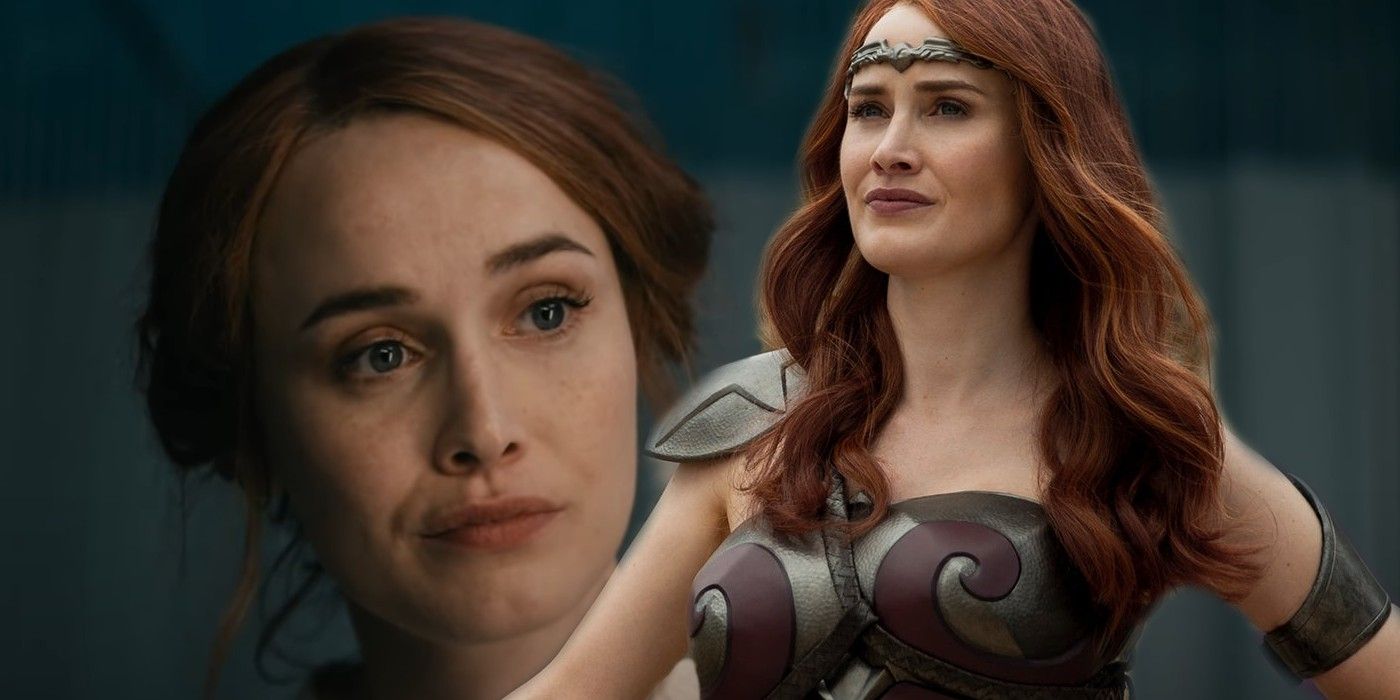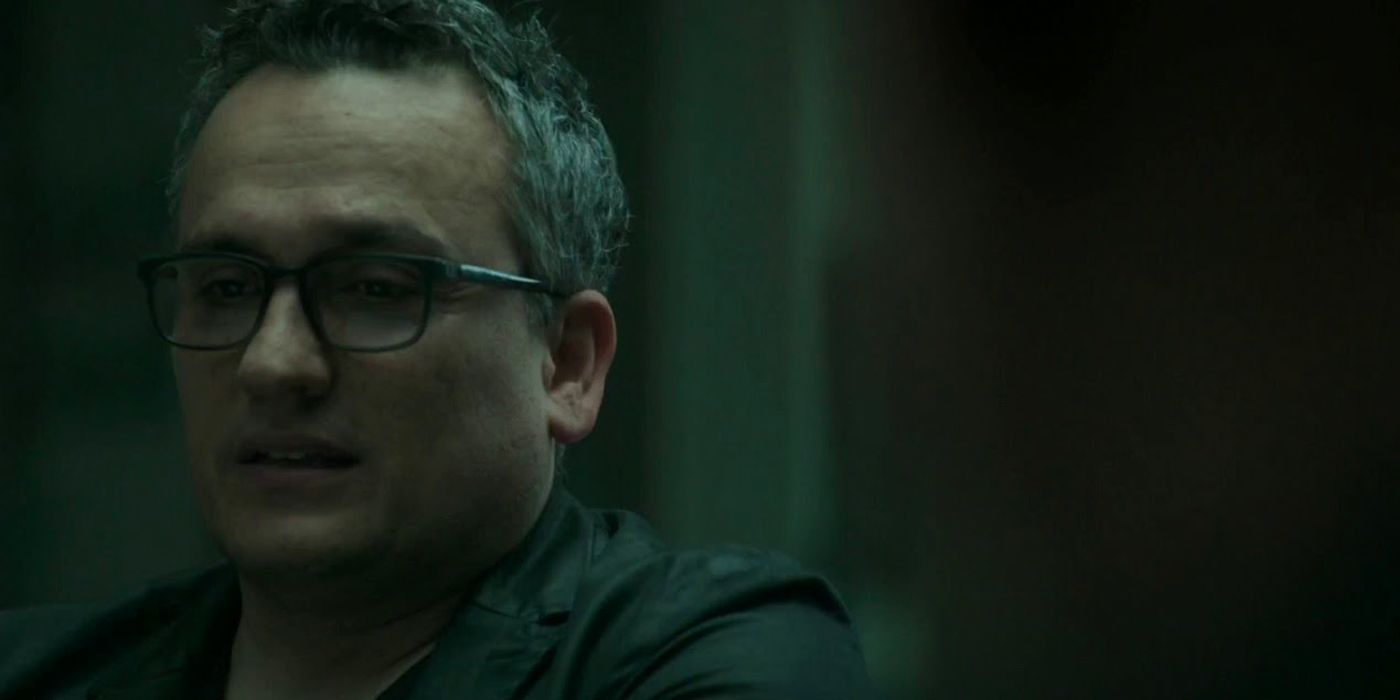The Boys season 2 has addressed the lack of LGBT+ representation both within the superhero genre and in wider mainstream culture. Never a series to shy away from real-world issues, The Boys has tackled some sensitive subject matter already in its two seasons on Amazon Prime. The Boys season 1 drew heavily from the #MeToo movement, using The Deep's sexual assault on Starlight as a jumping off point, and season 2 appears to be focused on the issue of race and white supremacy. The racist hero Stormfront is leading a populist movement, weaponizing anger and fear over super-powered terrorists invading the United States, and Homelander was forced to address #HeroesSoWhite during a painfully awkward live TV interview.
During that same talk show segment, Homelander also publicly outed Queen Maeve in a vindictive and deceptive move. Prior to joining The Seven, Maeve was in a relationship with a woman named Elena, but since becoming an international suphero, has kept both Elena and her sexuality hidden. Maeve and Elena rekindled their romance earlier in The Boys season 2, but Homelander soon found out, and is now making Queen Maeve pay in his own sadistic fashion. As with Starlight's story in season 1, Maeve's dilemma has opened out into a wider conversation, but this time putting LGBT+ representation at the fore.
In "We Gotta Go Now," The Seven are shooting their Batman v Superman-esque "Dawn of the Seven" movie. Vought have apparently seized upon Maeve's newly-revealed sexual orientation and paired her up with a female hero in a cringe-worthy and contrived post-battle romance scene. After an exchange of trite dialogue, Maeve and her co-star go in for the kiss, only for the director to yell "cut!" before their lips touch.
Immediately, this moment feels like a commentary on LGBT+ representation at the movies. Avengers: Endgame was said to include the MCU's first openly gay character, however, this merely amounted to Joe Russo mentioning a date with another man. Similarly, Thor: Ragnarok's Valkyrie was confirmed as bisexual, but with no reference to this in the final edit. Widespread criticism followed, particularly with regards to Avengers: Endgame, which left many fans disappointed at the weak attempt at representation in a franchise comprising over 20 movies. Away from the superhero genre, Star Wars: The Rise of Skywalker was also lambasted for including a blink-and-you'll-miss-it lesbian kiss shoved into the background. When the director cuts before Queen Maeve's kiss, The Boys is perhaps alluding to Hollywood's preference for token representation rather than genuine inclusion.
The Boys drives that message home later in the episode during a meeting between Queen Maeve, Elena and the Vought team, who are proposing a brand new strategy for Maeve after her enforced coming out on live TV. Vought's misguided pitch is a parade of insulting stereotypes that leave both Maeve and Elena aghast, but the pièce de résistance is Vought's proposed makeover for Elena - a more typically "masculine" ensemble that couldn't be further from how Elena usually dresses. When the couple begin to protest, Vought argue that audiences find it easier to accept gay relationships when there are clearly defined gender roles. Unsurprisingly, Elena promptly leaves. Once again, The Boys is making a salient point about the portrayal of LGBT+ relationships in the media - the element of compromise designed to appease conservative markets, leaving gay and bi romance stories underrepresented. Vought are obviously an exaggerated portrayal of a corporation, but the company perhaps share more in common with the real world than it seems.


